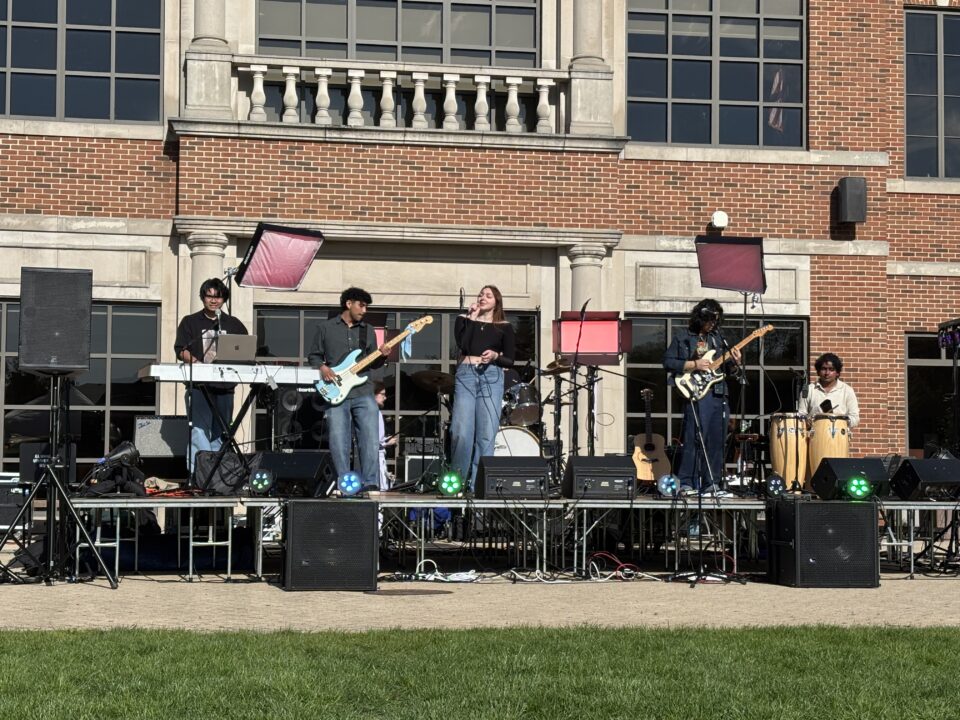“As much beauty as there is blood”: A review on “Judas and the Black Messiah”
There is a carefully carved edginess to "Judas and the Black Messiah." It is a dramatization that feels more present, more uncompromisingly true, than most period pieces made today. It achieves this by being written with as much beauty as there is blood. It is a story of a crime that, despite taking place decades ago, still asks us how we cope in the country that permitted crimes just like it before — and has so many times since. "Judas" isn't bookmarked with comforting lies like “but that was then, and we are happily living now." Shaka King's debut feature taps into our current timeline and uses it to reacquaint us with that chilling line: "The past is never dead. It's not even past."*
We open with a reckless robbery gone wrong. Rather than seem like a hollow effort to hook the viewer's attention with quick action, Shaka King and cinematographer Sean Bobbitt ("12 Years a Slave") masterfully set up the entire movie. The controlled chaos and the suggestion that, for these lives, chaos is always a heartbeat away pries into the viewer's senses, making their expectations feel infiltrated. All the scenes to come, whether they are loud or quiet, follow the same trajectory as the opening, earning the pace a haunting, tense poeticism. King's control is marvelous.
The thief, Bill O'Neal (LaKeith Stanfield, "Sorry to Bother You"), is caught with an item that can turn his clumsily earned felony into a decade-plus stretch in prison. He's offered a get-out-of-jail-free-card that is so tantalizingly delivered by Jesse Plemons, playing FBI Agent Roy Mitchell, that the viewer quickly understands how a small-minded criminal could be seduced into playing a pivotal role in something awful.
The terse, coldly knowing editing by Kristan Sprague and the horror-meets-jazz score of Craig Harris and Mark Isham stack the odds against the righteous winning the day. It is the obsession of the reptilian FBI Director J. Edgar Hoover (Martin Sheen, only recognizable in voice) to regard the Black Panther Party as public enemy number one; to treat them as terrorists, even if their activities are harmless. For a film set in the late 1960s, it is impossible not to hear our previous president lob the same lies against Black Lives Matter.
Here, King and co-writer Will Berson make one of their wisest decisions in the telling of this story: Stressing that the Black Panther Party was a humanitarian group, volunteers working tirelessly to keep their brothers and sisters from choking on despair. Without lazily spelling it out, the viewer understands that for much of our lives, we have been lied to about the Black Panthers in rhetoric identical to Hoover’s. The stifling of the Black Panthers’ efforts wasn't about protecting citizens from violence, it was about depriving non-white people across the country of power, control, and hope.
The way this story is told feels so different from how one may have expected it to play out from the trailer. It knows we know what’ll happen. Instead of pretending we don’t, King alters our view from death and focuses it on life we are so rarely shown. It is in this space we meet Fred Hampton, played by Daniel Kaluuya ("Get Out"), who makes up for not looking anything like the young adult Hampton by giving the best performance of his life. The film is at its best when we are watching him, because every detail of this performance is excellent. Like the best historical pictures, we wish we had known this man, wish we had been nearby just to hear his voice.
It is a difficult thing to make goodness an interesting part of characters anymore. As people, we are more inclined to be interested in figures whose flaws mirror our own (whether we know that or not). But Kaluuya's Hampton is fearlessly loving, and it feels good to love him back. He's funny, caring, fiercely intelligent, and (crushingly for the viewer) hopeful. Hampton's warmth and vulnerability is what gives the film its cruelest edge: No matter how compassionate a human being he was, his trust permitted somebody like Bill O'Neal to infiltrate his orbit. By not giving in to paranoia, he made himself an easy target for enemies he did nothing to provoke, a nation that perceived his Blackness and the love shown to him by many as a threat.
Kaluuya's Hampton presents a man who is cursed with naivete but never with stupidity; that what he cannot see is not blindness, but a testament to a rare strain of belief. This biblical attitude is explored in the film's best scene, involving Hampton and his poet-wife, Deborah (Dominique Fishback). Rather than tell us things about Hampton we cannot know for a fact, we disappear into a quiet, private moment involving a man and a woman expressing their love for each other, using words of life and death to seal their pact. It is no mistake that on both ends of this scene, there is violence against a Panther.
A quick complaint I had after finishing "Judas and the Black Messiah" is that there weren't enough scenes between Hampton and O'Neal, a criticism largely stemming from my love of both Kaluuya and Stanfield, two of the most original young actors alive. There is a particular moment when Stanfield's nervousness is so apparent it boggles the mind he isn't drawing suspicion (it involves an offer of a drink, and you'll know it when you see it).
This is my only major issue: The film acknowledges that O'Neal is feeling guilty, but King has no complex ways of depicting it. The film could have spared more time to explore how O'Neal was internally justifying his deception besides giving us the obligatory "I did something bad, now my dream’s hurt" scene.
That's a small complaint when held up to just what a memorable motion picture this is, one that is such a gift to be getting this early in the year; one whose distribution encourages as many people see it as possible; one that doesn't only want to excite, but enlighten and inspire as much as it infuriates. It may seem like overkill to some that a filmmaking newcomer like Shaka King be receiving huge awards season hype (I think of Benh Zeitlin back when "Beasts of the Southern Wild" came out in 2012), but it really isn't every day we get a feature debut that is so confident how it wants the viewer to feel and how it will need to tell its story to achieve that. In my opinion, it will succeed for many, and then some. Don't be surprised if this film becomes part of the way you see the world.
*William Faulkner, "Requiem for a Nun"


